Search This Blog
Friday, September 30, 2016
The Girl On The Train (2016)
The Beguiled (1971)
Ransom (1956)
The 8 year old son (Bobby Clark) of a wealthy industrialist (Glenn Ford) is kidnapped and a ransom for $500,000 is demanded. But when the father is told that there's only a 50/50 chance he'll get his son back alive even if the ransom is paid, he takes a shocking action that turns his wife (Donna Reed) and the public against him. Based on a 1954 episode of the United States Steel Hour with Ralph Bellamy in Ford's role and later remade in 1996 by Ron Howard with Mel Gibson in Ford's part. Directed by Alex Segal, this is an unusual thriller that focuses on the domestic aspect of the kidnapping and thereby affords a more in depth look at the characters. The kidnappers are never seen, just referred to and the 1996 film made the mistake of padding out the film with the kidnappers and thus taking out much of the tension and focus of the central story. Ford gives one of his best performances and this was Reed's last really good role before she became America's favorite TV mom. She goes from the perfect little suburban housewife to medicated mess hysterically unraveling before our very eyes. A nifty and intense thriller with a solid human element. With Leslie Nielsen, Juano Hernandez, Robert Keith, Juanita Moore, Mabel Albertson, Lori March and Alexander Scourby.
Thursday, September 29, 2016
Aliens (1986)
The survivor (Sigourney Weaver) of a cargo ship is discovered by a salvage crew after drifting for 57 years in hibernation in space. The authorities disbelieve her story of an alien creature who killed her crew and necessitating her blowing up the multi million dollar spaceship. But when contact is suddenly lost with a colony of settlers now living on the moon where the alien eggs were first discovered, she is asked to accompany a crew of Marines to investigate. Written and directed by James Cameron, this was the first sequel to the classic 1979 Ridley Scott film. I know a lot of people who love it as much (if not more) as the first entry but while I greatly enjoy it, it's my least favorite of the four ALIEN films. On the plus side, there's a wonderful central Oscar nominated performance by Sigourney Weaver who brings a gravitas and emotional core to the film. Unfortunately, none of the other actors are her equal. Indeed, Cameron's dialogue is pretty bad. He gets a few comic zingers in but most of it is flat. Whereas the 1979 ALIEN was an intense piece of horror that grabbed you and twisted you into knots (when I first saw it theatrically it literally took 5 minutes before I was calm enough to start my car), ALIENS is essentially a WWII movie in outer space with a bunch of Marine grunts spouting cliched dialogue. Some of the action pieces are spectacular and the final battle between Weaver and the alien queen is a dilly and you won't be bored. With Michael Biehn, Paul Reiser, Bill Paxton (who's awful), Carrie Henn, Lance Henricksen and Jenette Goldstein.
Wednesday, September 28, 2016
La Chienne (1931)
Trapped in an unhappy marriage with a shrewish wife (Magdeleine Berubet), a cashier and amateur painter (Michel Simon) falls in love with a tramp (Janie Marese). Although she's not attracted to him, her brutish boyfriend (Georges Flamant) encourages her to become the cashier's mistress while soaking him for all his money. Based on the novel by Georges De La Fouchardiere and directed by Jean Renoir, this was remade in 1945 by Fritz Lang as SCARLET STREET. It's a rare instance where both films, the original and the remake, stand solidly on their own. Some of the performances in Renoir's film are different enough from Lang's remake are noticeable enough to make a slight difference. Flamant's pimp doesn't come across as vicious as Dan Duryea in the Lang film and Marese seems not as bright and less calculating than Joan Bennett's femme fatale. But Michel Simon is sublime, one can't help but feel sorry for this poor shapeless lump of a man who seems a born loser. Renoir avoids the cautious morality that was inevitable with the American remake. A murderer without a conscience? Unthinkable in a Hollywood film of the era. A skillfully rendered dark piece of irony with just a soupcon of humor. Marese was killed in an auto accident the year the movie came out, the car was driven by Flamant who plays her pimp. How creepy is that?
Roxanne (1987)
The fire chief (Steve Martin) in a Northwestern small town has an abnormally large nose. He's overly sensitive about it and uses his sharp wit to offset any potential remarks. But when a beautiful astronomer (Daryl Hannah) moves into town, he's smitten. But she has eyes for the dim witted but muscular fireman (Rick Rossovich) who works with him. Loosely based on the classic 1897 play CYRANO DE BERGERAC by Edmond Rostand and adapted by Martin for the screen. The movie is charming and a reminder that Steve Martin was the best movie comic working in the 1980s and how appealing he was. Martin's comic ability was physical just as much as it was verbal and the spectacular nose renders him even more engaging. As the object of his affection, Daryl Hannah doesn't have to do much but be the blonde Amazon goddess that she is, who wouldn't fall in love with her? The small town (which is in British Columbia, not the U.S.) is a dream of a fairy tale village populated by eccentric quirky denizens. A comic gem that is also a mischievous romantic comedy. Directed by Fred Schepisi. With Shelley Duvall, Michael J. Pollard, Fred Willard, Shandra Beri and John Kapelos.
Tuesday, September 27, 2016
Hoodlum Empire (1952)
The Black Swan (1942)
The infamous Morgan The Pirate (Laird Cregar) is not only granted a pardon from King Charles II but he is made the governor of Jamaica! But when a renegade pirate (George Sanders) continues to pillage British ships, the new governor sends his best man (a scruffy looking Tyrone Power) to bring him back dead or alive. Based on the novel by Rafael Sabatini and directed by Henry King (CAROUSEL). Now this is a swashbuckler! Clocking in at a tight 85 minutes running time, director King crams the film with color (it won the Oscar for best color cinematography), action and romance. Power had already proven himself adept at Fairbanks like derring-do in THE MARK OF ZORRO (1940) and he doesn't disappoint here. Toss in a feisty Maureen O'Hara in glorious Technicolor and you have a terrific recipe for a grand entertainment. Some of Power's treatment of O'Hara is dubious by contemporary standards. He slaps her around and kidnaps her but she carries a pistol and bashes his head with a rock so it's not as if she's a tremulous damsel in distress. If lacking originality, it makes up for it with vigor and swagger. The lively underscore is by Alfred Newman. With Anthony Quinn, Thomas Mitchell, George Zucco and Fortunio Bonanova.
Monday, September 26, 2016
Sweet Charity (1969)
A good hearted but not too bright dance hall "hostess" (Shirley MacLaine) is a romantic and gullible when it comes to men who are constantly using her and then dumping her. But when she meets a rather conservative insurance actuary (John McMartin recreating his stage role), things look like they might change for the better. Based on the 1966 Broadway hit musical which in turn was adapted from the Federico Fellini film, NIGHTS OF CABIRIA. Although he had danced in and choreographed movies before, this was Bob Fosse's directorial film debut. While many consider this film Fosse's cinematic trial run for his next film CABARET (1972), that's unfair. While the film is not without its flaws and pretensions (like the overuse of freeze frames), it's a more than decent movie musical. It affords Shirley MacLaine (who started off as a dancer on Broadway) one of the few opportunities she had to show off her dancing skills in film. The songs by Cy Coleman and Dorothy Fields are wonderful and Fosse's choreography may be the most exciting since Jerome Robbins' WEST SIDE STORY 8 years earlier. If nothing else, we get to see the great Chita Rivera in her only major film role. Some TV versions have been known to show the film with an alternate "happy" ending which is blasphemous! With Ricardo Montalban, Paula Kelly, Barbara Bouchet, Stubby Kaye, Bud Cort and Sammy Davis Jr. as "Big Daddy".
Sunday, September 25, 2016
Les Liaisons Dangereuses (2003)
Saturday, September 24, 2016
Telmisseomding (aka Tell Me Something) (1999)
Set in Seoul, South Korea, a police detective (Suk Kyu Han) under a cloud of suspicion for receiving graft is assigned to a serial killer case. Dismembered bodies are being found around the city but the pieces are all mixed up, the body parts don't all belong to the same person. The common link is a young woman (Eun Ha Shim) who knew all the victims romantically and is apparently being stalked by the killer. But is she an innocent victim or is she complicit in some way? Directed by Yun Hyeon Jang, this was a massive hit in South Korea though its success wasn't duplicated in the U.S. It's a variation of American films like SILENCE OF THE LAMBS and SE7EN but a little more crudely done. The gross factor keeps it from moving into more elevated terrain. It's done cleverly enough even to the point of planting a huge red herring at the beginning which I bought hook line and sinker. The most interesting character is a young female doctor (Jung Ah Yum) who's ambiguous and even when the film is over, you're not quite sure who she is/was and what her motivations are. I enjoyed it but it doesn't quite have the resonance that a great thriller should have. With Hang Seon Jang and Joon Sang Yoo.
Friday, September 23, 2016
The Spoilers (1955)
The Black Pirate (1926)
After he and his dying father are washed ashore after their ship is blown up by pirates, the son (Douglas Fairbanks) swears to avenge his father's death. To this end, he joins the very pirates who were responsible for blowing up their ship. As directed by Albert Parker, this is an amiable swashbuckler with Fairbanks doing his special blend of panache and athleticism masquerading as acting. Handsomely shot in the early two strip Technicolor process by Henry Sharp, it could have used a wee bit more punch but that might have more to do with the editing which tends to dwell too long on the scenes. Certainly Mortimer Wilson's lazy musical doodling which serves as an underscore doesn't help matters any (oh, what Korngold could have done with this movie!). Still, a fun movie all in all. With the lovely Billie Dove as the romantic interest, Donald Crisp and Sam De Grasse as Fairbanks' pirate rival.
Thursday, September 22, 2016
Deepwater Horizon (2016)
Little Shop Of Horrors (1986)
Wednesday, September 21, 2016
The Sailor Who Fell From Grace With The Sea (1976)
The Man Who Came To Dinner (1942)
On a lecture tour in Ohio, a famous author (Monty Woolley) with an acidic wit and a venomous tongue slips on some ice injuring himself and is confined to the home of a bourgeois couple (Billie Burke, Grant Mitchell). To say he makes their lives (and everyone else around him) a living hell is an understatement. Based on the 1939 hit Broadway play by Moss Hart and George S. Kaufman who based Woolley's character on Alexander Woollcott. Considering how topical circa 1942 the film is, its humor holds up remarkably well though it helps to be familiar with the political and pop culture of the era to "get" some of the jokes. Biting and witty, it's one of the best comedies of the era and one doesn't even mind that it's mostly stage bound. Thankfully, Woolley was allowed to recreate his stage performance as he's nothing less than perfect. I assume Bette Davis was cast for box office insurance. As the secretary, she seems overqualified (she'd already won her 2 Oscars) for an uninteresting role just about any of Warners contract players could have done. As the glamorous actress, Ann Sheridan hits it home and the rest of the cast does itself proud. Directed by William Keighley. With Jimmy Durante, Reginald Gardiner, Mary Wickes, Elisabeth Fraser and Richard Travis.
Tuesday, September 20, 2016
Women In Love (1969)
Set in a country coal mining town in 1920s England, two very different sisters find themselves attracted to two complicated men. One (Glenda Jackson) gets involved with the wealthy son (Oliver Reed) of the mine's owner (Alan Webb) while the other (Jennie Linden) falls in love with a free thinking non-conformist (Alan Bates). Based on the classic novel by D.H. Lawrence and directed by Ken Russell. I'm not an admirer of Lawrence's novel which I found very abstruse and enigmatic. I'm more than willing to admit the fault is mine though to be fair I was only 20 when I read it. That being said, Russell's film does an admirable job of keeping the essence of Lawrence's novel while freely going all cinematic on us rather than give us a tasteful Merchant/Ivory rendition of a classic novel. Admirers of the book may feel differently. Stunningly shot by Billy Williams in Great Britain (Derbyshire, Nottinghamshire, Yorkshire) and Switzerland, Russell's films explores the complex question of what defines love and if love can be limited to just one person or gender. This was the career breakthrough for Jackson (who won an Oscar for her work here) and she dominates the film although I felt Reed held his own in his scenes with her. As crazy, sensual and envelope pushing as it is, ironically this may be Russell's most restrained motion picture. With Eleanor Bron, Vladek Sheybal, Michael Gough, Catherine Willmer and Christopher Gable.
Monday, September 19, 2016
The Scarlet Pimpernel (1934)
France 1792 and the Reign Of Terror is in full swing at the height of the French Revolution. A British aristocrat (Leslie Howard) plays the fop to throw suspicion off him when he is, in fact, the Scarlet Pimpernel: a master of disguise who helps condemned French aristocrats escape the guillotine right under the nose of the new French power. Based on the novel by Baroness Orczy which has been filmed several times for both film and television as well as adapted for the stage. Directed by Harold Young, this is probably the best known (and liked) version. I suppose technically this would fall under the category of swashbuckler but there's very little "swash", no sword fights and little derring-do. Still, it's quite enjoyable and while Leslie Howard isn't one's idea of an action hero, as an actor, he brings a bit more depth to his two sided character than is usual in such films. Merle Oberon as his wife is gorgeous and that's enough and Raymond Massey makes for a deliciously unctuous villain. With Nigel Bruce, Walter Rilla, Melville Cooper and Joan Gardner.
The Pride And The Passion (1957)
Set in the early 19th century during the Napoleonic wars as France occupies Spain. A British naval captain (Cary Grant) is sent to find a massive abandoned cannon and prevent it from falling into French hands. But he finds himself at odds with a band of Spanish guerrillas headed by a peasant (Frank Sinatra) who insist the cannon belongs to them and is to be used to liberate the city of Avila. Based on the novel THE GUN by C.S. Forester and directed by Stanley Kramer. Although the film is usually dismissed if not reviled, it's my second favorite Kramer film (as a director) after IT'S A MAD MAD MAD MAD WORLD. One reason is that we're not being preached at or hit over the head with a lecture. Also, like IAMMMMW, it's visually interesting. Kramer is one of the least interesting directors visually, his films tend to be talking heads movies. This one is gorgeously shot by Franz Planer (BREAKFAST AT TIFFANY'S) in VistaVision. Kramer's intention was to make an epic and he falls short but it's not for lack of trying with its cast of thousands! The casting is off too. When we see Grant in a knife fight with Jose Nieto, it almost seems surreal. Cary Grant in a knife fight? Still he fares better than Sinatra who's unconvincing as a Spanish peasant with a piss poor accent to boot. Wasn't Anthony Quinn or Ricardo Montalban available? Fortunately there's the spectacular Sophia Loren whose flamenco is a highlight of the movie. Perhaps a bit turgid but never boring. There's a killer score by George Antheil. With Theodore Bikel and Jay Novello.
Saturday, September 17, 2016
Queen Of Katwe (2016)
In 2007 Uganda, a young girl (Nadina Malwanga) lives in poverty with her widowed mother (Lupita Nyong'o) and three siblings. Her future looks dire until she discovers chess where she finds that she has an intuitive talent for the game. A mentor (David Oyelowo) takes her under his wing and it isn't long before she becomes competitive. Based on the true story of Phiona Mutes whose story was put in book form by Tim Crothers and adapted for the screen by William Wheeler. Directed by Mira Nair (MONSOON WEDDING), this is a joyous film! This may be a Disney film but it is never manipulative or sentimental thanks to Nair and a tight script. Everybody loves an underdog movie but the film never panders to the audience asking for cheers. This is authentic, it isn't ROCKY (not a slam against ROCKY, I loved it!). The film features an all black cast and with the exception of Oyelowo and Nyong'o, the entire cast is Ugandan. Oyelowo and Nyong'o are excellent but the film belongs to young Malwanga who had never acted before. This is a mainstream family movie at its best. With Martin Kabanza, Taryn Kyaze, Ethan Nazario Lubega and Nikia Waligwa.
84 Charing Cross Road (1987)
In 1949, an American anglophile (Anne Bancroft) for rare British classics and literature begins a correspondence with the manager (Anthony Hopkins) of an English bookshop that specializes in rare and out of print books. For almost 20 years, without ever meeting, they correspond through letters. Based on the book by Helene Hanff which chronicles the 20 years of letters between her and Frank Doel first published in 1970. It was made into a British TV play in 1975 followed by a London stage production in 1981 and a Broadway production (with Ellen Burstyn) in 1982. The screenplay is by Hugh Whitemore who wrote the original 1975 TV play. This is a lovely film with the most unlikely of cinematic subjects: the love of books and the collector mentality. It's not very cinematic and much of the film is devoted to the exchange of letters voiced over by Bancroft, Hopkins and others but depending on one's affection for the subject matter, it's a little jewel of a movie. Sadly, it does seem a bit antiquated today what with the internet and kindle taking the place of books in our culture but it serves as a reminder of that joy of opening a parcel of something you've been waiting for, running your fingertips over the stiff pages and smelling the bound leather and placing it proudly on your bookshelf. Directed by David Hugh Jones. With Judi Dench, Mercedes Ruehl and Maurice Denham.
Three Violent People (1956)
Friday, September 16, 2016
There's A Girl In My Soup (1970)
The Informer (1935)
Thursday, September 15, 2016
Sanma No Aji (aka An Autumn Afternoon) (1962)
An aging widower (Chishu Ryu) lives with his 24 year old daughter (Shima Iwashita) who takes care of him. When a friend (Nobu Nakamura) suggests that it's time for his daughter to get married, the father protests that she's not ready but perhaps it's his loneliness that doesn't want to let her go. When he sees the unhappy relationship between a former teacher (Ejiro Tono) and his bitter daughter (the wonderful Haruko Sugimura) who's given up several chances to marry in order to take care of her old father, he begins to reassess his position. The final film of the great Yasujiro Ozu is, fittingly, a rumination on family, aging and loneliness. As with most of Ozu's films, the narrative is deceptively simple, little moments that when accumulated provide a sum of poignant and perceptive observations. Ryu was a frequent leading player in Ozu's films and he's an actor of great subtlety, his moments of stillness saying so much more than all the histrionics of lesser actors. A penetrating experience. The excellent cast includes Ryuji Kita, Mariko Okada and Shinichiro Mikami.
Wednesday, September 14, 2016
The Silence Of The Lambs (1991)
Women He's Undressed (2015)
Tuesday, September 13, 2016
The Queen Of Spades (1949)
In 1806 Russia, a soldier (Anton Walbrook) from a working class background feels his fellow soldiers who come from the aristocracy don't accept him. When he hears that an aged Countess (Edith Evans making her film debut at the age of 60) has reputedly sold her soul to the Devil to get the secret of winning at cards, he plots to get the secret from her. Based on the short story by Alexander Pushkin and directed by Thorold Dickinson (the 1940 British GASLIGHT). The film deals with the supernatural and some consider it a horror story but if it is, it's a very subtle one and of the psychological kind. This is the kind of role Walbrook was made for and he doesn't disappoint. He positively oozes psychotic malevolence. Dickinson takes his time in setting it up and the atmosphere soon becomes toxic the nearer Walbrook gets to executing his plan. One of the seminal post war British films, I'm surprised that so few film fans have seen it and its reputation can only grow as more catch up with it. With Yvonne Mitchell (also in her film debut), Ronald Howard (looking eerily like his father Leslie), Anthony Dawson, Michael Medwin and Athene Seyler.
Monday, September 12, 2016
World Without End (1956)
A group of astronauts are returning to Earth from a mission to Mars when they are caught in a time warp and sent spiraling 550 years into the future. What they find is an Earth desolated by nuclear war and humans living underground while murderous mutants prowl the Earth's surface. Written and directed by Edward Bernds (QUEEN OF OUTER SPACE), this "B" piece of science fiction is modestly entertaining and bears a strong resemblance to THE TIME MACHINE which would come 3 years later and which also starred Rod Taylor who plays one of the astronauts here. But a lawsuit was avoided. For a minor piece of sci-fi, it looks quite nice as shot by Ellsworth Fredericks (he shot INVASION OF THE BODY SNATCHERS the same year) in CinemaScope and Technicolor with a strong production design by Dave Milton (HOUSE ON HAUNTED HILL). It's not a serious piece of sci-fi, it's the kind of sci-fi where all the women are gorgeous and wear mini skirts and high heels while the men are soft and weak so our masculine astronauts look even better to the women of the planet. Some of the special effects (like the mutant spiders) are a bit cheesy but it only gives the movie an added bit of charm. In addition to Rod Taylor, the cast includes the dull and stalwart Hugh Marlowe, Nancy Gates, Nelson Leigh, Lisa Montell, Shawn Smith and Christopher Dark.
Chitty Chitty Bang Bang (1968)
An inventor (Dick Van Dyke) is struggling to make a living while raising two children (Adrian Hall, Heather Ripley). He purchases an old dilapidated jalopy and fixes it up and is startled to find the car can fly! Loosely based on the Ian Fleming children's novel and directed by Ken Hughes who co-wrote the screenplay with Roald Dahl. This musical has many of the same team that were behind Disney's MARY POPPINS including Van Dyke, the Sherman brothers who did the songs and choreographers Marc Breaux and Dee Dee Wood. Heresy I know but I actually prefer it to the 1964 Disney film. Handsomely shot in 70 millimeter by Christopher Challis (TWO FOR THE ROAD), it's a great looking film boasting an attractive production design by the great Ken Adam. The songs are appealing including the irresistibly catchy title song and the haunting Hushabye Mountain and the Breaux/Wood choreography is lively particularly in the Old Bamboo number. The film gets a bit darker in the second half after the intermission when they reach the country of Vulgaria where children are forbidden and rounded up and tossed into dungeons. Curiously, the film's reputation seems to be one of inferiority when, in fact, it received very good reviews from Time magazine, the New York Times and Roger Ebert! With Sally Ann Howes, Gert Frobe, Lionel Jeffries, James Robertson Justice, Benny Hill, Anna Quayle, Barbara Windsor and Robert Helpmann (THE RED SHOES) as the dreaded child catcher.
Sunday, September 11, 2016
Sully (2016)
Saturday, September 10, 2016
Night Of The Demon (1957)
The Tailor Of Panama (2001)
The Last Outpost (1935)
During WWI, a British officer (Cary Grant) captured by Kurds is rescued by an undercover British Intelligence officer (Claude Rains) and together they set out on a mission to warn a British friendly tribe of an impending attack by the Kurds. They are eventually separated but when they meet again, the circumstances are under highly volatile conditions. Based on the novel THE DRUM by F. Britten Austin and co-directed by Charles Barton and Louis Gasnier, the first portion of the film is quite interesting mostly because of the stock footage borrowed from Merian C. Cooper's 1925 documentary GRASS. After Grant is wounded and returned to civilization, the film becomes a rather tedious and predictable wartime romance and even though the film eventually returns to the war in the Sudan sequences, it's never able to recover the good will from the first third of the film. Even at a brief running time of an hour and 16 minutes, it's a bit of a slog. With Gertrude Michael as the film's love interest, Kathleen Burke and Billy Bevan.
Friday, September 9, 2016
The Sandpiper (1965)
Thursday, September 8, 2016
Vera Cruz (1954)
Gosta Berlings Saga (1924)
A defrocked priest (Lars Hanson) is driven out of his parish and falls under the protection of a wealthy woman (Gerda Lundequist) along with several other disreputable men who are referred to as the "knights" of her estate. Based on the 1891 novel by Nobel prize winner Selma Lagerlof, Mauritz Stiller's 3 hour epic is an ambitious tale of flawed outcasts who seek out redemption. Though Hanson's Gosta Berling is the central character, there are several other major storylines and other characters who share his outclass status. Curiously, they're all women who in a patriarchal society are literally thrown out of their homes for their "sins". Originally released in the U.S. in a severely truncated version almost cut in half, the 3 hour cut is a beautifully crafted piece of cinema which feels very Dickensian. A future legend is in the cast: the young Greta Garbo as a young bride in a loveless marriage with a gutless husband (Torsten Hammaren) and a witch of a mother in law (Ellen Hartman Cederstrom). An excellent underscore by Matti Bye especially written for the restored version. With Jenny Hasselqvist, Karin Swanstrom and Sixten Malmerfelt.
Wednesday, September 7, 2016
Treasure Of The Sierra Madre (1948)
Elle (2016)
After a brutal rape, a woman (Isabelle Huppert) chooses not to report it to the police because of a traumatic experience in her childhood. But the rapist isn't through with her yet and as it turns out ..... she isn't through with the rapist. This is a rich and complex film, easily Paul Verhoeven's best film since THE 4TH MAN and certainly superior to his American output in the ensuing years. But this isn't a rape victim movie like THE ACCUSED or a rape revenge film like MS. 45. Indeed, Huppert's character is a bit of a mean spirited bitch. Her response to the rape is so unconventional I suspect American audiences will be turned off. Clearly, the burden she has had to carry since she was a child colors a lot of her adult behavior but the inability to pigeonhole her may prove difficult for audiences used to black and white characterizations. There's a big "why?" hovering over the film that's never really answered which is fine by me but mainstream audiences seem to want their endings tied up in neat little ribbons. Huppert is magnificent, yet another potent performance by one of the premier actresses of her generation. Disturbing but highly recommended. With Christian Berkel, Anne Consigny, Laurent Lafitte and Jonas Bioquet.
Tuesday, September 6, 2016
Pinocchio (1976)
Monday, September 5, 2016
The Burbs (1989)
While on vacation at home for a week, a suburbanite (Tom Hanks) begins to get suspicious of his new neighbors who never seem to come out during the day but from whose house strange lights and sounds emanate at night. Directed by Joe Dante (GREMLINS), this frantic comedy screams out the 1980s which is too bad as it would have played better if Corey Feldman's teen dude, to name just one example, had been eliminated. The acting is very broad and over the top (except by the two female leads) but once you get accustomed to the feverish style of the film, most of it is very amusing albeit far fetched. I can't help but wonder if the film's ending was changed somewhere along the line (after previews?). Hanks gives a terrific speech that would seem to emphasize the film's theme and it would have been the perfect time to end the film. But at the very end, it confirms the paranoia of the main protagonists. Jerry Goldsmith contributed the clever underscore. With Bruce Dern, Carrie Fisher, Henry Gibson, Rick Ducommun and Wendy Schaal.
Sunday, September 4, 2016
The Light Between Oceans (2016)
A young woman (Rachel Weisz) loses her husband (Leon Ford) and her baby daughter when they are lost at sea and she understandably finds it difficult to come to terms with it. A lighthouse keeper (Michael Fassbender) and his wife (Alicia Vikander), who has had two miscarriages, find a dead man and a living baby girl adrift in a boat. Some 5 years later, the two stories will merge and with tragic consequences for all concerned. Directed by Derek Cianfrance (BLUE VALENTINE) from the novel by M.L. Stedman, this is a cerebral tearjerker. It has some real powerhouse moments (bring some Kleenex) but Cianfrance holds back as if he feared if he goes all the way, we'd feel manipulated like those crappy Nicholas Sparks movie adaptations. While I can respect his "good taste" and lack of manipulation, his reticence gives the film a sterility that compromises it. It's the kind of film where you find your allegiances shifting but by the end of the movie, everything is tied up in a neat tidy knot. Too tidy perhaps, I wouldn't have minded a little messier ending. With actors like Fassbender, Vikander and Weisz, you would expect terrific performances and in that respect they deliver. In fact, all three are pretty awesome. With Bryan Brown and Jack Thompson.
Possession Of Joel Delaney (1972)
Saturday, September 3, 2016
Blood Alley (1955)
Friday, September 2, 2016
Carmen (1984)
In 1875 Spain, a career soldier (Placido Domingo) finds himself both repelled and attracted to a sexually free gypsy girl (Julia Migenes) who works in a tobacco factory. She toys with him and he falls in love but no good will come of it. Directed by Francesco Rosi (HANDS OVER THE CITY) and based upon Bizet's popular opera. Filmed opera is problematic in many ways. Some of the greatest opera singers aren't necessarily "attractive" enough for cinema but on the opera stage, a great voice and stage presence are what really matters. Also, the thrill of seeing live opera is hearing what the singer does in the moment while filmed opera is, of necessity, pre-recorded. Then too often, directors feel the opera is the thing so a camera is placed to merely record the performers which doesn't make for great cinema. Rosi's adaptation is thrilling because it's a real movie, not a film of a staged opera, this moves. Beautifully shot on location in Andalusia by the great Pasqualino De Santis (Zeffirelli's ROMEO AND JULIET), the movie is alive with activity and colors and the performances are naturalistic (for an opera, anyway) rather than posed. The film is fortunate with Migenes as Carmen. She has a gorgeous voice, sexy, a good screen presence and she can act. You can believe this vixen can lure men to their doom! Domingo is in fine voice if somewhat stiff but that fits Don Jose perfectly. With Faith Esham and Ruggero Raimondi.
Subscribe to:
Posts (Atom)




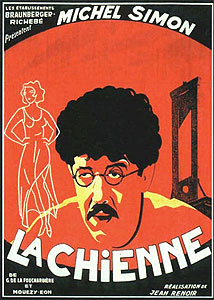



.JPG)



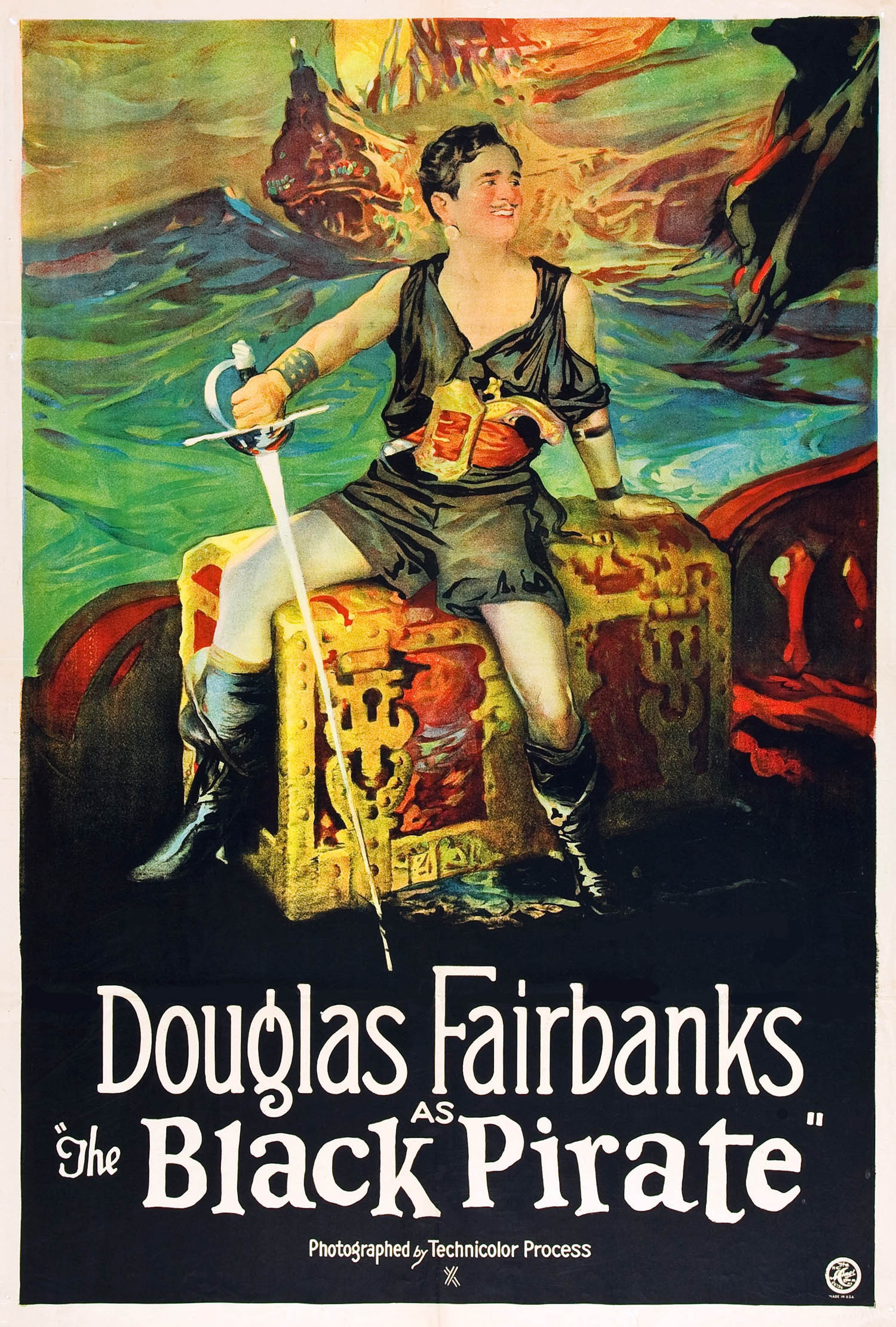
.jpg)


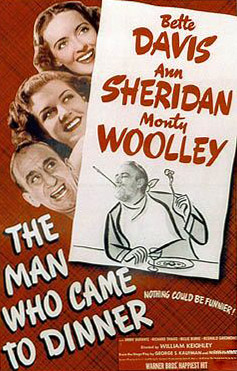


.JPG)



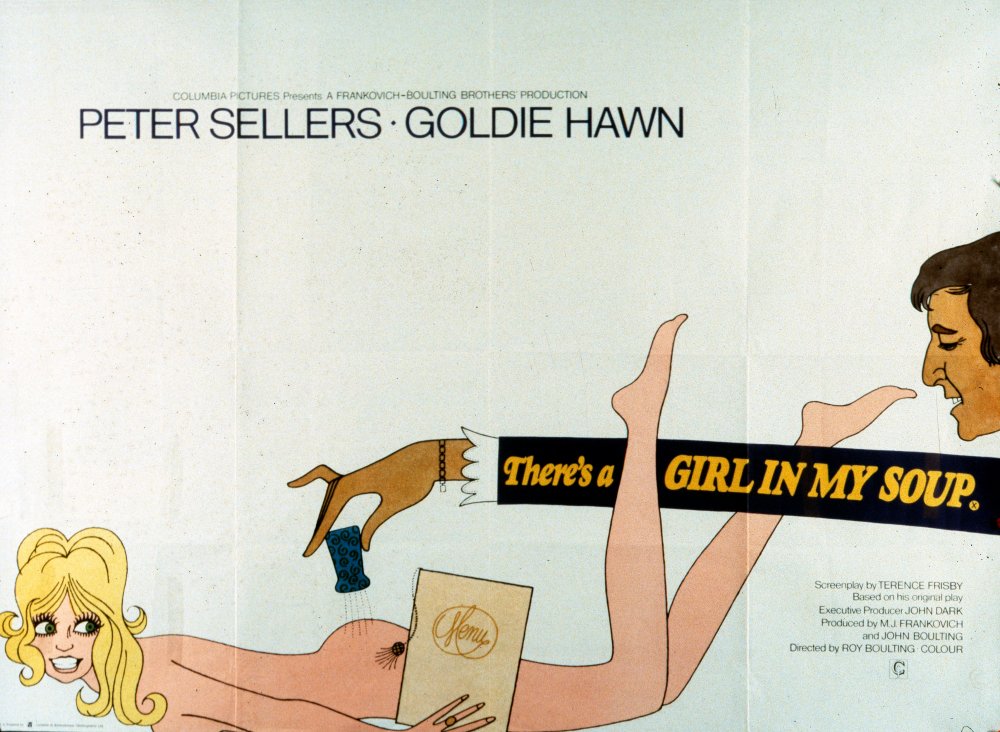
.jpg)



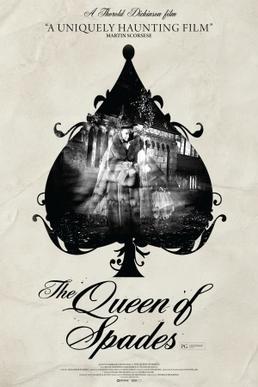

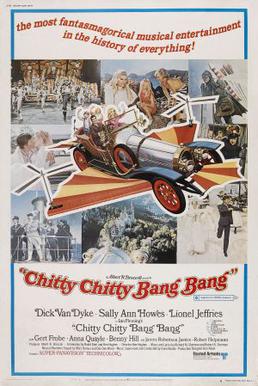
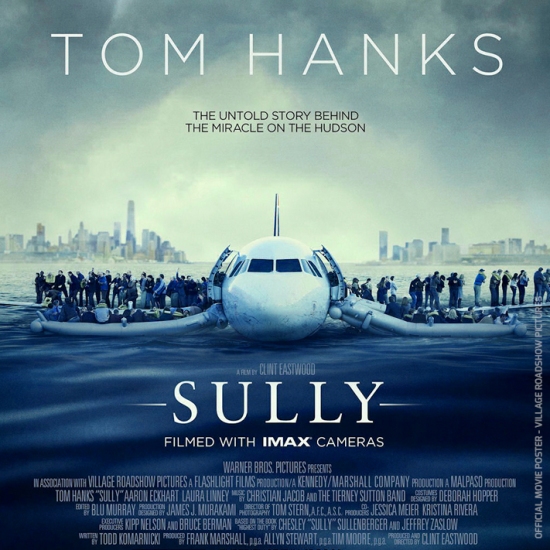



.JPG)









